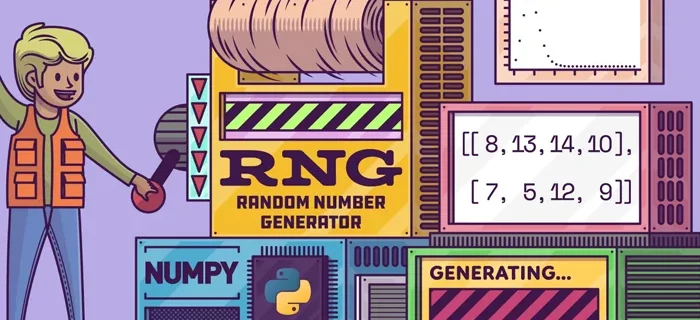Among the glitter of casinos, perhaps little else can really fascinate gamers as much as the lure of slot machines. From mechanical to digital marvels, these ubiquitous gaming devices are far ahead of their counterparts, with complex algorithms and RNGs now determining their outcomes. This technological transformation has not only enhanced the gaming experience but also totally changed the industry’s approach towards fairness and regulation.
Modern slot machines essentially use RNGs combined with complex algorithms. Whereas older slots physically use reels and springs, modern slot machines are actually just computers in a pretty cabinet. These machines are equipped with RNGs that can produce sequences of numbers incredibly fast, sometimes producing thousands of numbers per second. These numbers correspond with specific symbols or outcomes on the virtual reels that determine whether a player wins or loses with every spin.
Understanding Random Number Generators (RNGs)

The random number generator is the backbone of the slot machine technology. An RNG is a sophisticated algorithm designed to produce a sequence of numbers that are as unpredictable as true random chance. In slot machines, these numbers are used in order to determine the position of the reels or symbols across the screen.
Continuous Operation
Because the RNG is always running, even when the machine isn’t being played, each spin is separate and independent from what happened before or will happen after.
Ensuring Fairness
There are several important reasons for using RNGs in slot machines. First of all, the ability to predict the outcome by players or casino operators is excluded. At the same time, this very randomness of the game is necessary to provide its integrity and to comply with the strict requirements of gambling legislation.
The Role of Algorithms in Slot Machine Design

Modern slot machine technology is also greatly reliant on elaborate algorithms aside from RNGs. These algorithms determine almost every section of the games, including the frequency of payouts, bonus features, and the overall return-to-player percentage.
Paytable Design
One of the key algorithmic elements is the paytable, the table showing winning combinations and their respective payoffs. The paytables for modern slot machines can be very complex, featuring multiple paylines, scatter symbols, and even bonus rounds. The algorithms ensure that these varied elements interact properly in providing an exciting experience for players and maintaining the house edge.
Near-Miss Scenarios
Another important aspect of slot machine algorithms involves the implementation of near-miss scenarios. These are outcomes that appear close enough to a significant win to keep players playing. While highly controversial, near-misses are indeed carefully developed to enhance the psychological appeal of the game without necessarily crossing ethical or legal boundaries.
Progressive Jackpots and Networked Gaming

RNGs and algorithms have also enabled progressive jackpots to become available in slot machines. These jackpots, which can attain life-changing sums, are made possible by networking several machines and algorithmically determining when and how the jackpot should be awarded. This networked approach greatly increased the potential payouts, adding to the fun and excitement of slot games.
Advancements in Slot Machine Technology
As the level of sophistication has increased with technological advancement, the advancement of the algorithms governing slot machines has also risen. Most modern machines have elements of artificial intelligence and machine learning that allow more personalised and adaptive game experiences. These systems can analyse player behaviour and preferences and adjust features in real-time to maximise the engagement and satisfaction of the players.
Regulatory Challenges and Solutions
The integration of RNGs and complex algorithms into slot machines hasn’t been without challenges. To ensure that RNGs are truly random, as well as that game algorithms are decent, a very thorough process of testing and certification has to be carried out. Regulatory bodies from all over the world have developed some strict standards and testing procedures aimed at checking these systems for integrity, and at protection of the player, as well as the reputation of the industry.
New Subheading + RNG Variations in Different Machines

While the principle of RNGs remains consistent, their implementation can vary between different types of slot machines. For instance, classic slots, often modeled after the original mechanical versions, may use simpler RNG algorithms, whereas video slots with multiple paylines and bonus features employ more sophisticated RNG designs. The differences in RNG complexity also influence the frequency of payouts, volatility, and overall player experience.
Additionally, certain machines are built with specific themes or target audiences in mind, further refining their algorithms to create unique gaming experiences. Whether it’s a nostalgic three-reel classic or a high-tech, five-reel video slot packed with animations and bonus features, RNGs are central to ensuring that every spin feels fresh and unpredictable.
How Algorithms Impact Volatility
Another key area where algorithms come into play is in determining the volatility of a slot machine. Volatility, also known as variance, is a measure of how often and how much a machine pays out. High-volatility slots tend to pay out larger sums but less frequently, while low-volatility slots offer more consistent, smaller payouts.
Behind the scenes, algorithms determine the distribution of winning combinations and their likelihood of appearing. The balance between enticing players with frequent smaller wins and keeping them engaged with the prospect of larger payouts is delicately managed by these algorithms. Casinos aim to maintain an enjoyable gaming experience while ensuring a long-term profit, and algorithms are the invisible force ensuring that balance is met.
Adaptive Gameplay with AI

Artificial intelligence (AI) is not just a buzzword in modern slot machine design; it plays a tangible role in adapting the gaming experience. Slot machines with AI capabilities can adjust to player behaviors in real-time. For instance, if a player tends to enjoy specific bonus features or prefers a certain style of gameplay, the machine’s AI might adjust the game flow subtly to enhance that experience.
Moreover, AI can optimize the display of near-miss scenarios, maintaining the excitement level for players without crossing into manipulation. These adaptations, governed by machine learning algorithms, aim to create a more personalized and engaging experience, enhancing player satisfaction and retention. This evolution represents a significant shift from the traditional static design of older slot machines, where each spin was identical to the last.
In a nutshell, one cannot overstate the importance of RNGs and algorithms in slot machine technology. It has turned what used to be a simple, mechanical game into an intensively sophisticated digital experience that delicately balances randomness with ingeniously crafted entertainment. With further development in technology, the use of algorithms in the world of slot machines will continue to find even more innovative applications, further dissolving the boundaries between gambling, gaming, and interactive entertainment.
Related Posts:
- How Slot Machine Line Configurations Impact Payouts…
- 9 Tech Innovations That Are Revolutionizing the…
- How to Choose the Best Tech Accessories for Your Pet?
- Are Your Expensive Tech Gadgets Covered by Home…
- Are You Using IT Wrong? Consultants Help Align Tech…
- How to Transition Into Auckland's Tech Industry: A…








